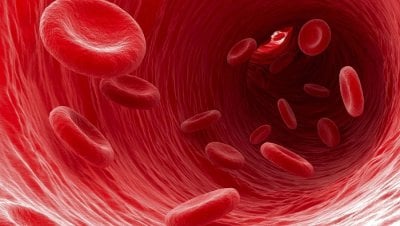PAUL-E
Member
Here's my thinking and why I think it might.
With more frequent injections you will typically need a lower weekly total testosterone dose
With more frequent injections you will typically have less E2 conversation and high e2 is associated with higher hematocrit so you would think lower E2 logically would equal lower hematocrit.
https://www.excelmale.com/forum/sho...-s-Role-on-Hematocrit-Study&p=39635#post39635

Conclusions: Testosterone has a dose-dependent stimulatory effect on erythropoiesis in men that is more pronounced in older men. The testosterone-induced rise in hemoglobin and hematocrit and age-related differences in response to testosterone therapy may be mediated by factors other than erythropoietin and sTfR.
http://www.ncbi.nlm.nih.gov/pmc/articles/PMC2266950/
Erythropoiesis (from Greek 'erythro' meaning "red" and 'poiesis' meaning "to make") is the process which produces red blood cells (erythrocytes). It is stimulated by decreased O2in circulation, which is detected by the kidneys, which then secrete the hormone erythropoietin.
I would love to hear any impute especially from the physicians if they have noticed anything in there practices.
With more frequent injections you will typically need a lower weekly total testosterone dose
With more frequent injections you will typically have less E2 conversation and high e2 is associated with higher hematocrit so you would think lower E2 logically would equal lower hematocrit.
https://www.excelmale.com/forum/sho...-s-Role-on-Hematocrit-Study&p=39635#post39635

Conclusions: Testosterone has a dose-dependent stimulatory effect on erythropoiesis in men that is more pronounced in older men. The testosterone-induced rise in hemoglobin and hematocrit and age-related differences in response to testosterone therapy may be mediated by factors other than erythropoietin and sTfR.
http://www.ncbi.nlm.nih.gov/pmc/articles/PMC2266950/
Erythropoiesis (from Greek 'erythro' meaning "red" and 'poiesis' meaning "to make") is the process which produces red blood cells (erythrocytes). It is stimulated by decreased O2in circulation, which is detected by the kidneys, which then secrete the hormone erythropoietin.
I would love to hear any impute especially from the physicians if they have noticed anything in there practices.
















